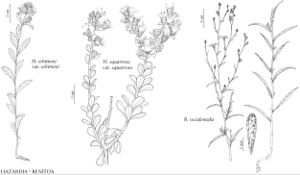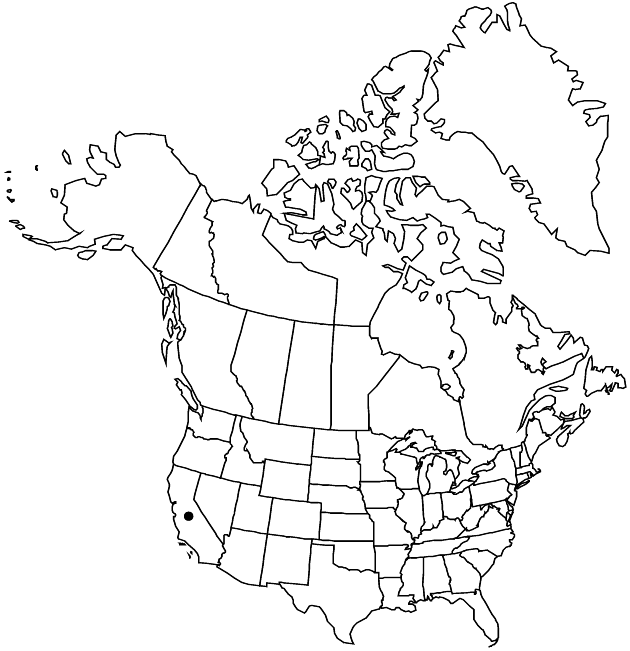Difference between revisions of "Benitoa occidentalis"
Leafl. W. Bot. 8: 26. 1956.
IllustratedEndemic
Basionym: Haplopappus occidentalis H. M. Hall Publ. Carnegie Inst. Wash. 389: 214, fig. 72. 1928
Synonyms: Lessingia occidentalis (H. M. Hall) M. A. Lane
Treatment appears in FNA Volume 20. Treatment on page 450.
imported>Volume Importer |
imported>Volume Importer |
||
| Line 63: | Line 63: | ||
|publication year=1956 | |publication year=1956 | ||
|special status=Illustrated;Endemic | |special status=Illustrated;Endemic | ||
| − | |source xml=https:// | + | |source xml=https://bitbucket.org/aafc-mbb/fna-data-curation/src/2e0870ddd59836b60bcf96646a41e87ea5a5943a/coarse_grained_fna_xml/V19-20-21/V20_1038.xml |
|tribe=Asteraceae tribe Astereae | |tribe=Asteraceae tribe Astereae | ||
|genus=Benitoa | |genus=Benitoa | ||
Latest revision as of 19:58, 5 November 2020
Leaf blades 20–80+ × 3–15+ mm. Phyllaries ± lanceolate, 1–10 mm. Ray laminae 5–7+ mm. Disc corollas 4–5+ mm. Cypselae 3–4 mm; pappi 3–4 mm. 2n = 10.
Phenology: Flowering Jun–Nov.
Habitat: Serpentine outcrops and clay slopes
Elevation: 300–1000 m
Discussion
Benitoa occidentalis is known only from the inner South Coast Ranges, southern San Benito County, and adjacent Fresno and Monterey counties.
Selected References
None.
Lower Taxa
None.

